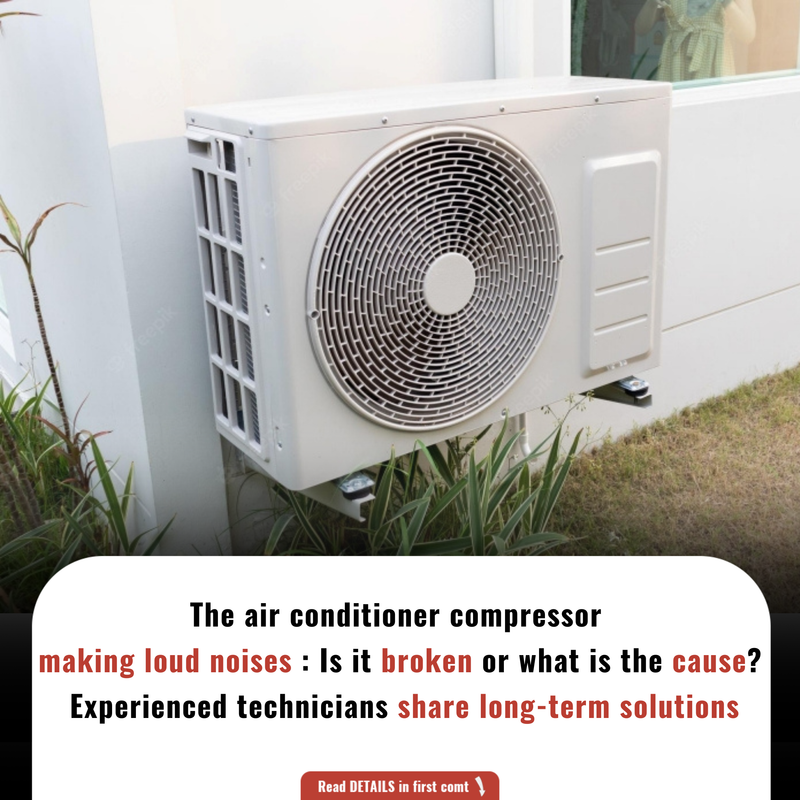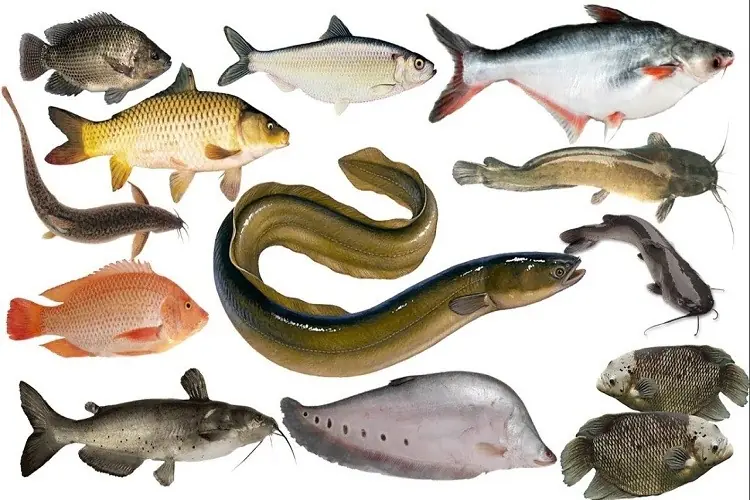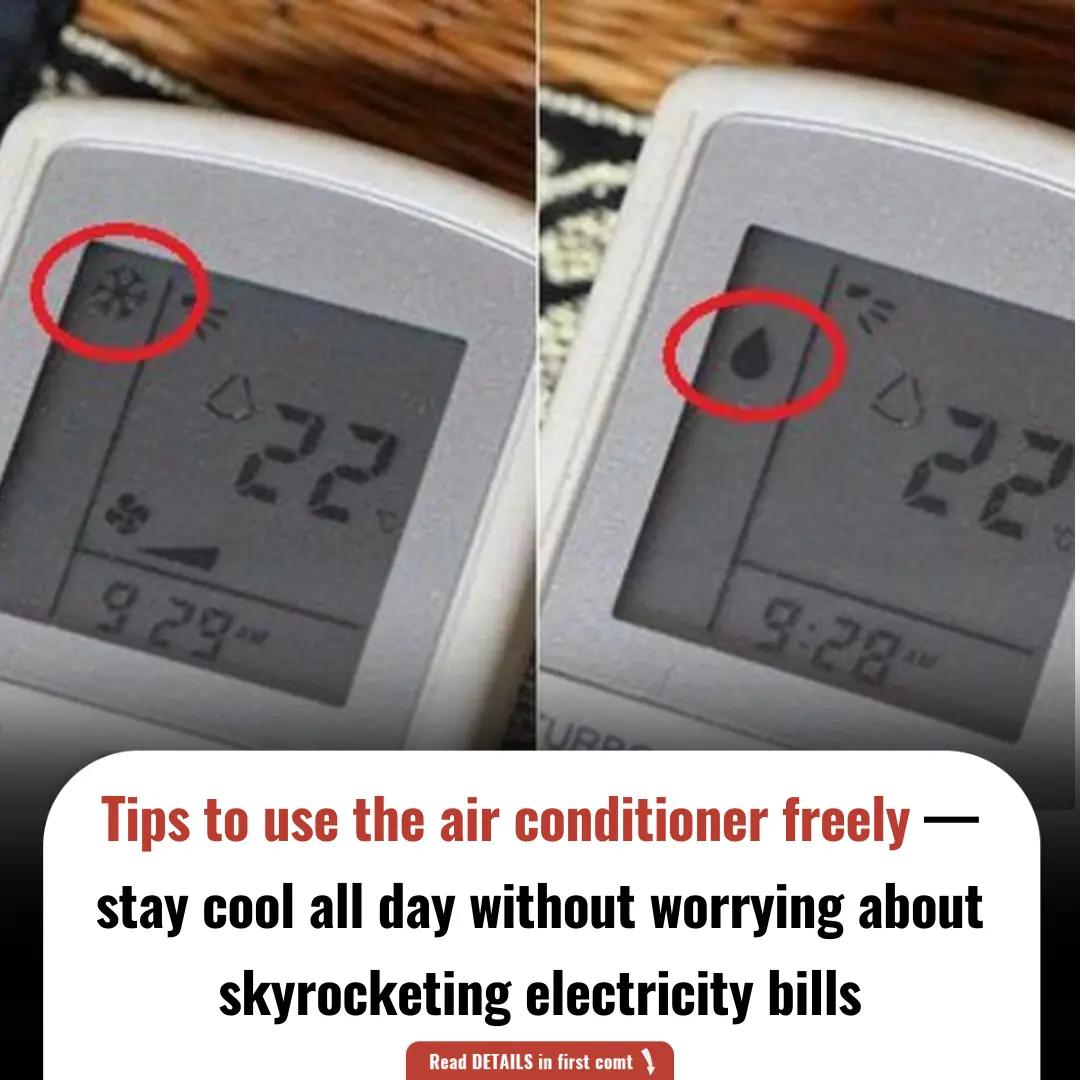
Why Is Your Air Conditioner’s Outdoor Unit Making Loud Noise Like a Leaf Blower? Causes and Fixes Explained
Why Is Your Air Conditioner’s Outdoor Unit Making Loud Noise Like a Leaf Blower? Causes and Fixes Explained

Many homeowners experience a sudden loud noise coming from their air conditioner’s outdoor unit — a sound often compared to the roar of a leaf blower. This annoying noise not only disrupts comfort but also often signals that the system is facing technical issues that, if left untreated, may worsen over time or cause system failure.
Understanding the root causes behind these noises, how to diagnose them, and most importantly, how to fix or prevent them can save you costly repairs and extend the lifespan of your air conditioner.
In this article, we explore the common reasons why your outdoor condenser unit makes such loud noises, explain the signs to watch for, and offer practical advice on how to maintain and repair it.
What Is the Outdoor Unit (Condenser) of an Air Conditioner?
Before diving into problems, it’s important to know the function of the outdoor unit. The condenser unit:
-
Houses the compressor, which pumps refrigerant through the system.
-
Contains the condenser coil, where refrigerant releases heat to the outside air.
-
Has a fan that blows air across the coils to cool the refrigerant.
-
Includes electrical components and protective casings.
Its proper operation is crucial for efficient cooling.
Common Reasons for Loud Noises Like a Leaf Blower from the Outdoor Unit
1. Accumulated Dirt, Leaves, or Debris
Outdoor units are exposed to the environment. Leaves, twigs, dust, and dirt can accumulate around or inside the unit’s fan and coils. This debris can cause:
-
Fan blades to hit objects or become unbalanced, producing a loud roaring or grinding noise.
-
Blocked airflow, forcing the fan motor to work harder and create more noise.
2. Worn or Damaged Fan Motor Bearings
Bearings in the fan motor allow smooth rotation. Over time, they may wear out or dry up, causing the fan to make grinding, squealing, or roaring noises similar to a leaf blower.
3. Loose or Damaged Fan Blades
Fan blades that become bent, cracked, or loose can hit the protective grill or other parts, creating loud noise and vibration.
4. Compressor Problems
The compressor is the heart of the system and can be a source of loud humming, banging, or roaring noises if:
-
It’s starting to fail.
-
Internal components are damaged or worn out.
-
Refrigerant levels are abnormal, causing strain.
5. Refrigerant Flow Issues
Noises like hissing, buzzing, or roaring can stem from abnormal refrigerant flow due to leaks, blockages, or incorrect charge levels.
6. Loose or Vibrating Panels and Components
Loose screws or mounting hardware can cause parts to vibrate against each other, amplifying noise levels.
How to Identify and Diagnose the Noise
-
Visual Inspection: Check for visible debris, bent fan blades, or loose parts.
-
Listen Carefully: Identify if noise happens only during startup, continuously, or intermittently.
-
Check Airflow: Reduced airflow or unusual airflow patterns can hint at blockages.
-
Monitor System Performance: Poor cooling efficiency alongside noise often indicates mechanical issues.
How Long Can You Delay Repair?
Ignoring loud noises is risky. Prolonged operation under abnormal conditions can lead to:
-
Further mechanical damage.
-
Compressor burnout.
-
Reduced cooling efficiency and higher energy bills.
-
Complete system failure requiring costly replacement.
Repair should be addressed promptly.
Step-by-Step Guide to Fix or Prevent Loud Outdoor Unit Noise
1. Clean the Outdoor Unit Regularly
-
Power off the unit.
-
Remove leaves, twigs, and debris manually.
-
Use a garden hose to gently spray dirt from coils and fan blades.
-
Avoid using high-pressure water that can damage fins.
2. Inspect and Tighten Screws and Panels
Check for loose screws or mounting brackets and tighten them to reduce vibration noise.
3. Lubricate Fan Motor Bearings
If the motor has accessible lubrication ports, apply appropriate oil to reduce friction noise. Otherwise, professional servicing is advised.
4. Replace Damaged Fan Blades
Bent or cracked fan blades should be replaced promptly to prevent further damage.
5. Check Refrigerant Levels and Leak Repair
Call a certified technician to measure refrigerant pressure and fix any leaks. Correct refrigerant levels reduce compressor strain and noise.
6. Consider Compressor Replacement if Needed
If the compressor is the noise source and is malfunctioning, replacement is often the best solution.
When to Call a Professional
-
If you cannot identify or safely fix the noise source.
-
If compressor issues or refrigerant leaks are suspected.
-
For annual maintenance and comprehensive system checks.
Regular professional maintenance can prevent many noise and efficiency issues.
Additional Tips for Extending Outdoor Unit Lifespan and Quiet Operation
-
Keep vegetation trimmed away from the unit for proper airflow.
-
Install vibration dampeners or rubber pads under the unit.
-
Avoid installing the unit near windows or outdoor seating areas.
-
Schedule routine cleaning and inspections at least once per year.
Summary
A loud, leaf-blower-like noise from your air conditioner’s outdoor unit usually indicates mechanical or maintenance problems such as debris buildup, worn fan bearings, damaged blades, or compressor issues. Timely diagnosis, regular cleaning, and professional servicing are essential to prevent system failure, reduce noise, and maintain efficient cooling.
By understanding these causes and solutions, you can keep your air conditioner running quietly and effectively for many years.
News in the same category


Scientists may have uncovered the reason why weight tends to rebound after loss

The truth about cold water: 5 health concerns you should know

Should you buy straight shrimp or curved shrimp at the market? I just learned today that there's such a big difference

Should you choose purple garlic or white garlic? Many housewives think they're the same, but in reality, they're not

Why you should never insert your washing machine drain hose directly into the floor drain: expert advice

Why Do People Throw Water Bottles Under Hotel Beds? The Hidden Reasons Behind This Common Habit

Why do hotels set check-out time at 12 pm? Unveiling the practical reasons

Early warnings signs and symptoms of ovarian canc3r everywoman should be aware of

8 types of food that can fight canc3r many of you didn't know

Woman’s Chilling Warning After Discovering Abandoned Pram on Remote Road

A 6-year-old boy diagnosed with late-stage canc3r, his father regrets after doctors reveal the cause linked to a popular type of beverage

New injectable male birth-control provides protection for over two years, reports biotech firm

What happens to your bl00d pressure if you eat banana daily: The answer is not what you expected

Beware: These 6 Inexpensive Fish Could Be Contaminated with H@rmful Toxins

Tips to use the air conditioner freely — stay cool all day without worrying about skyrocketing electricity bills

For those who wake up more than 2 twice to urinate at night, it could be a sign of these serious health conditions

4 types of super common drinks that do more harm to your l!ver than alcoh0l but many people don't know

Early warning signs of diabetes: The reason why it is "the silent k!ller"

When heartburn and bloating isn’t normal: How to k!ll the bacteria causing havoc in your gut
News Post

MY STEPMOTHER K!CKED ME OUT AFTER DAD'S DE@TH - THEN THE BLACK SUVs SHOWED UP
When Elish loses her father, she expects grief, not betrayal. K!cked out of her childhood home by the woman who never wanted her, she makes one desperate call. But what waits on the other end isn’t pity but power.

Collagen Drops from Flaxseed Gel: A Natural Botox Alternative for Youthful, Wrinkle-Free Skin
Flaxseed collagen drops offer a compelling, natural alternative to invasive anti-aging treatments like Botox.

5 types of food that can do wonder for your gut health and digestion

Scientists may have uncovered the reason why weight tends to rebound after loss

The truth about cold water: 5 health concerns you should know

Should you buy straight shrimp or curved shrimp at the market? I just learned today that there's such a big difference

Turmeric Gel To Get Rid Of Age Spots & Get Youthful Skin
. With the simple, natural turmeric gel recipe and consistent care, you can gradually erase the signs of aging, brighten your complexion, and nurture your skin’s health from within.

Should you choose purple garlic or white garlic? Many housewives think they're the same, but in reality, they're not

DIY Onion Juice Serum To Grow Thick Eyebrows In Just 1 Week
By embracing simple DIY remedies like onion juice serum, egg yolk masks, fenugreek pastes, and petroleum jelly applications, you can support your natural hair growth cycle, improve hair health, and restore your natural beauty.

Why you should never insert your washing machine drain hose directly into the floor drain: expert advice

Why Do People Throw Water Bottles Under Hotel Beds? The Hidden Reasons Behind This Common Habit

SACRIFICE, BETRAYAL, AND LOVE: A MAN’S LIFELONG FIGHT FOR FAMILY AND DIGNITY
Discover the heart-wrenching story of a man who sacrificed everything to care for his family, only to face betrayal and loneliness. This powerful journey of resilience and love reveals the true cost of sacrifice.

A Miraculous Rescue: Saving an Injured Golden Eagle Named Goldie in Kanab, Utah
A woman saves an injured Golden Eagle in Kanab, Utah, witnessing a miraculous recovery. Read her story! ❤️🦅

A FARMER’S KINDNESS TO SHY CHILDREN TEACHES A POWERFUL LESSON ABOUT INCLUSION AND JOY
When a farmer’s simple act of kindness helps a shy child with a birthmark find confidence and joy, it becomes a heartwarming reminder of how small moments can change lives forever.

Homemade Flaxseed and Okra Hair Gels Natural Remedies for Hair Growth
These simple DIY recipes harness the power of nature’s ingredients and ancient wisdom, delivering visible benefits with patience and care.

A SIMPLE ACT OF KINDNESS AT THE GROCERY STORE RESTORES FAITH IN HUMANITY
In a world filled with negativity, a touching story of a stranger paying for a man’s groceries—just milk and cookies—reminds us all that small acts of kindness can make a huge difference. Discover the heartfelt moment that inspires paying it forward

HOW A LOST DOG LED US TO OUR PERFECT PAL — AND CHANGED OUR LIVES FOREVER
After losing their beloved dog, a couple’s journey to find a new furry friend led them to a trembling shelter dog who became the perfect companion. Discover how adoption transformed their lives and why rescuing animals matters.

A Heartwarming In-Flight Moment: Kids’ Innocent Friendship Goes Viral
Two kids form a viral friendship on a flight from St. Pete’s to Flint, symbolizing a hopeful future. Read their story! ❤️✈️

Homemade Black Hair Oil to Reverse Gray Hair: Turn White Hair to Black
Start with simple natural oils and dietary improvements, and explore medical options if necessary. Embrace a holistic routine that supports not just hair color, but overall scalp health and hair strength.
